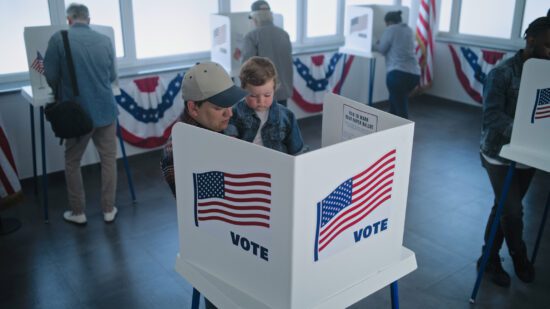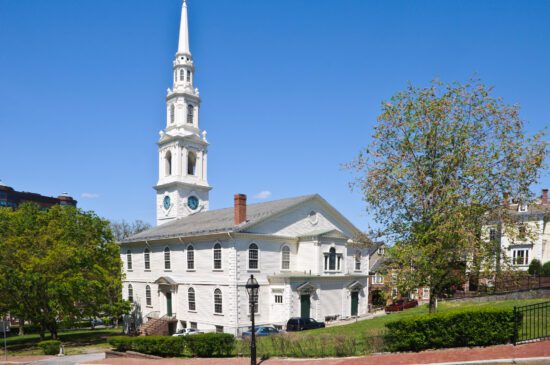Leave us alone and our ideas will triumph.
Religious freedom is dangerous for secularism because secularism is doomed in a free marketplace of ideas. Anti-religion can catch a wave of the moment if the dominant religions are receding, but revival will soon reduce them to the tide pools.
We are not afraid because Christians have faced much worse and prevailed. Nero was Emperor of the Romans, but then a Christian Emperor saved Rome for a millennium. Islam was going to sweep the church into oblivion until Islam ended up in the backwater of history for centuries. Stalin was the future that worked and now Stalin is the monster who murdered a nation. Mao was cool until the murderer was dead.
As bloody persecution sweeps the Middle East, American Christians understand our relative blessings. We have it better than Christians in the rest of the world and we know it. Our primary focus must be on the suffering church of Iraq, Syria, Sudan, and North Korea, but this does not prevent a secondary focus on the defense of religious liberty at home. American Christians are right that being “number one” in religious freedom is only comforting if based on growing freedom in American life and not only because American decline started from a great place and still leaves the US being relatively less awful.
If acquiescing to gay marriage or injustice at home would save one Syrian Christian life, I would consider the compromise. The Islamic State does not seem interested in such a trade.
In this broken world, Christians have to deal with multiple issues at once: foreign and domestic. Our worst day is better than an Iraqi Christian’s best day, but that does not mean that we must be silent about the erosion of our religious liberty. Christian thinkers are capable of opposing the Islamic State (serious) and fighting for full religious liberty in the United States.
Secularism dominates influential sectors of American society and is adept at framing the questions we face. Roe versus Wade demonstrates beyond a doubt that such victories forced through with temporary majorities do not last. Millions of traditional Christians are not going to change their minds and adopt secularism tomorrow, partly because secularism doesn’t work and Christianity does.
The poor are better off if they adopt Christian morality and practice it. They are destroyed by the consumerism and hedonism the secular media teaches. The Christian church will thrive in urban areas that see that our message works and that the alternatives are violent.
The greatest threat to religious freedom is that opponents of religion are afraid. They cannot be afraid of persecution, as atheists have never been burned at the stake in the United States. The bluster of the new atheists is to cover the fact that the religious have the cathedrals, the art, evensong, and Shakespeare. Secularists have modernity, 50 Shades of Grey, the Oscars, and Book of Mormon (the musical!). Even then, the best of their culture borrows, begs, and steals from Christendom: Christian fairy tales twisted, religious values mocked.
There is no creativity in a taking Jewish and Christian culture and stripping away the parts that bother secularists. The lame imitation is endless: secular Christmas is not better, just secular. Secular music is church music in bondage. How many genre of pop music got started in church music? Now that the church is shrinking, where will the next great genre develop? Educational curriculum came out of Christian civilization that was training people for eternal life, not preparing workers for the omnipotent state. The old Bachelor of Arts made sense in a Christian nation, but who will defend it or give it content now?
From the start of the nation, an Enlightenment-influenced American Christian super-majority faced radical dissent from our assumptions about the good life and we handled it with tolerance. With Christian apologist and philosopher John Locke, we valued human reason. Some groups placed less emphasis on reason. American Christians typically thought scientific progress was a good thing, but not all Americans did. A significant portion of Americans would not even swear allegiance to the United States. We let them affirm their allegiance.
As a result, dissident Christian groups- some as counter-cultural as the Amish- came from all over the world to practice their faith. They were welcome and we did not fear their dissent despite the fact that as the decades passed, their lifestyle served as a constant alternative to the majority’s choices. More conservative groups of Mennonites and Amish became less like the American majority over time, but the majority did not respond by forcing their “ways” on these little groups.
I dare our secular compatriots to us the same freedom the Christian majority gave to the dissident Amish: the right to live a counter-cultural life freely.
The Amish are allowed to run their businesses on Amish principles.
The Amish are allowed to educate their children on Amish principles.
The Amish are allowed to vote their values.
Let traditional Christians run our private businesses, even refuse to bake your cakes.
Let traditional Christians educate their children on Christian ideals.
Let us vote our values.
Whenever I have mentioned this solution to friends, they point to the obvious disanalogy: these were small groups and traditional Christians are the majority in parts of the United States. Federalism solves this problem. If Alabama or Utah were left alone on social and religious issues, then New York (as her population fades) should be left alone as well. If the federal solution is rejected, grant traditional Christians a large “private” sphere of activity (including our businesses).
Some studies suggest that the Amish population is growing. Are their civil and religious rights to be imperiled when they are large? I hope not. It would be a perversity in a secular democracy if the largest dissident groups had fewer rights than fringe dissident groups. This intolerance would suggest a lack of confidence in the persuasiveness of their cause and the effectiveness of their values from the majority!
Give the Church the freedom that we gave the Amish and within the century there will be a revival that democratically will sweep away the secularism of this particular historical moment. When Christians of that time gain a majority on issues where we are now a minority, I trust we will treat the decayed secularist parts of the nation with tolerance.









